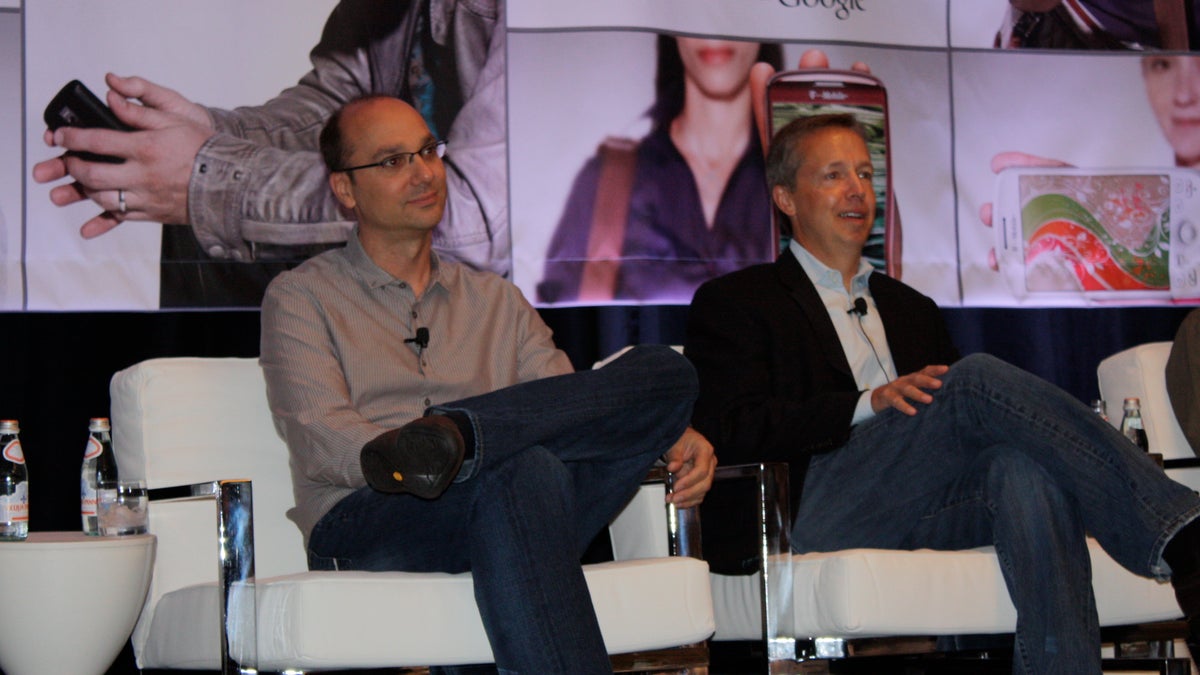Google sees separate paths for Android, Chrome OS
Android is already on the horizon for Netbook makers, and Chrome is supposed to be a Netbook-optimized operating system. What's a Netbook company to do?

SAN FRANCISCO--Among the many questions raised in the wake of Google's announcement of Chrome OS is exactly how the project fits in with Google's Android mobile operating system.
Essentially, nothing has changed, said Google's Andy Rubin at a press conference Friday morning highlighting Google and T-Mobile's partnership on the launch of the new MyTouch 3G smartphone. "You need different technology for different products," Rubin said, explaining that Google's approach to product development means that projects that might overlap aren't necessarily scuttled to protect the one that got there first.
Android is first and foremost a smartphone operating system, found on products such as the new MyTouch, the older G1, and others scattered around the world. But companies such as Acer and Asus are planning to put Android on Netbooks later this year, and several others are rumored to be following suit.
Chrome OS, however, is supposedly going to arrive on Netbooks first when it's scheduled to be ready in the second half of 2010. So how should companies thinking about alternatives to Windows on Netbooks navigate about Google's operating system strategy?
Google's blog post announcing Chrome OS acknowledged the overlap. "Android was designed from the beginning to work across a variety of devices from phones to set-top boxes to Netbooks. Google Chrome OS is being created for people who spend most of their time on the Web, and is being designed to power computers ranging from small Netbooks to full-size desktop systems."
After a panel discussion, Rubin declined to get into specifics about how Android and Chrome would be presented to Google partners once both are on the market. But during the discussion he noted that Android is capable of handling complicated, specialized tasks that a browser-based OS may not be able to tackle.
For example, Android handles the complicated process of handing off an Internet connection between cell towers as you drive down the highway, and carefully manages the power consumption of the system to extent the battery, Rubin said.
Google is also planning to make social-networking technologies a big part of a future Android release, he said. Google just released Android 1.5, known as Cupcake, and plans to keep the sweet desert theme going into the future with code names such as Donut, Eclair, and eventually Flan, but Rubin didn't specify which release will introduce heavier integration with social technologies.
And work continues on making Android suitable for things like set-top boxes and even refrigerators, Rubin said. "Our team is working hard to define those profiles. We've done a good job defining those profiles for cell phones."
But the Netbook situation remains murky. Is Google going to support two different operating systems for the mini-notebook market? As of yet, no Open Handset Alliance type of partnership exists for Chrome OS, meaning that unless that changes Google will have to do almost all the heavy lifting on Chrome development and support itself.